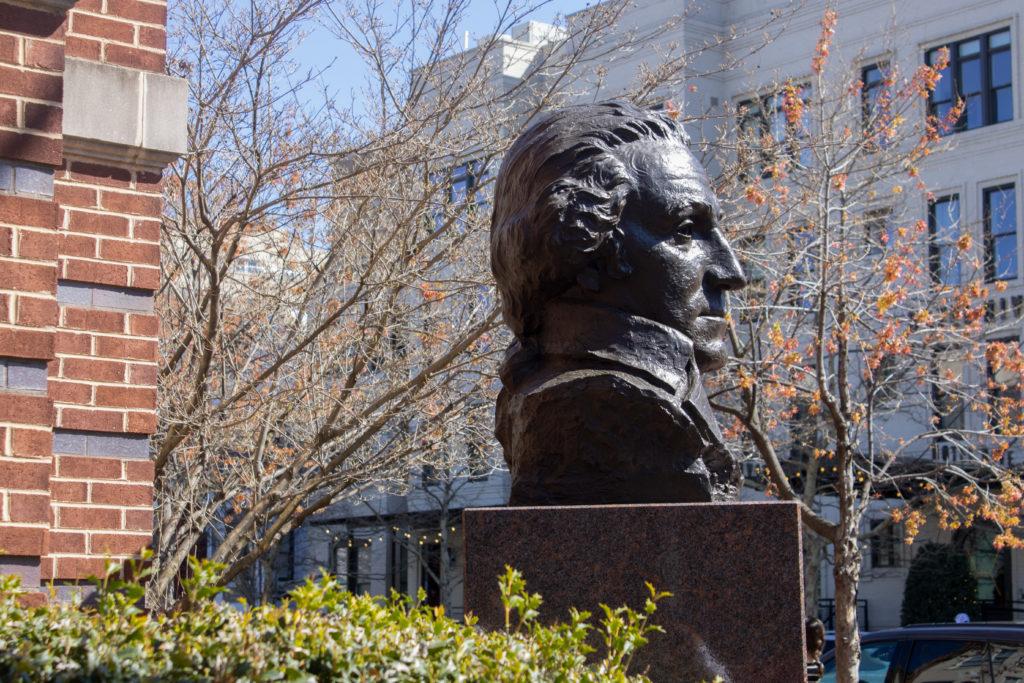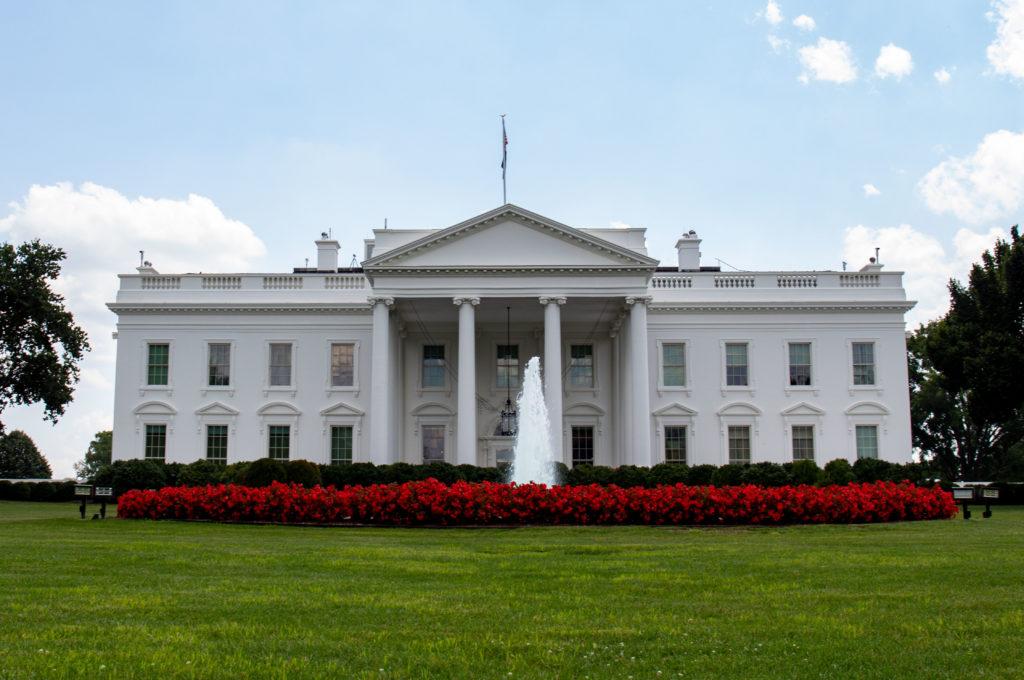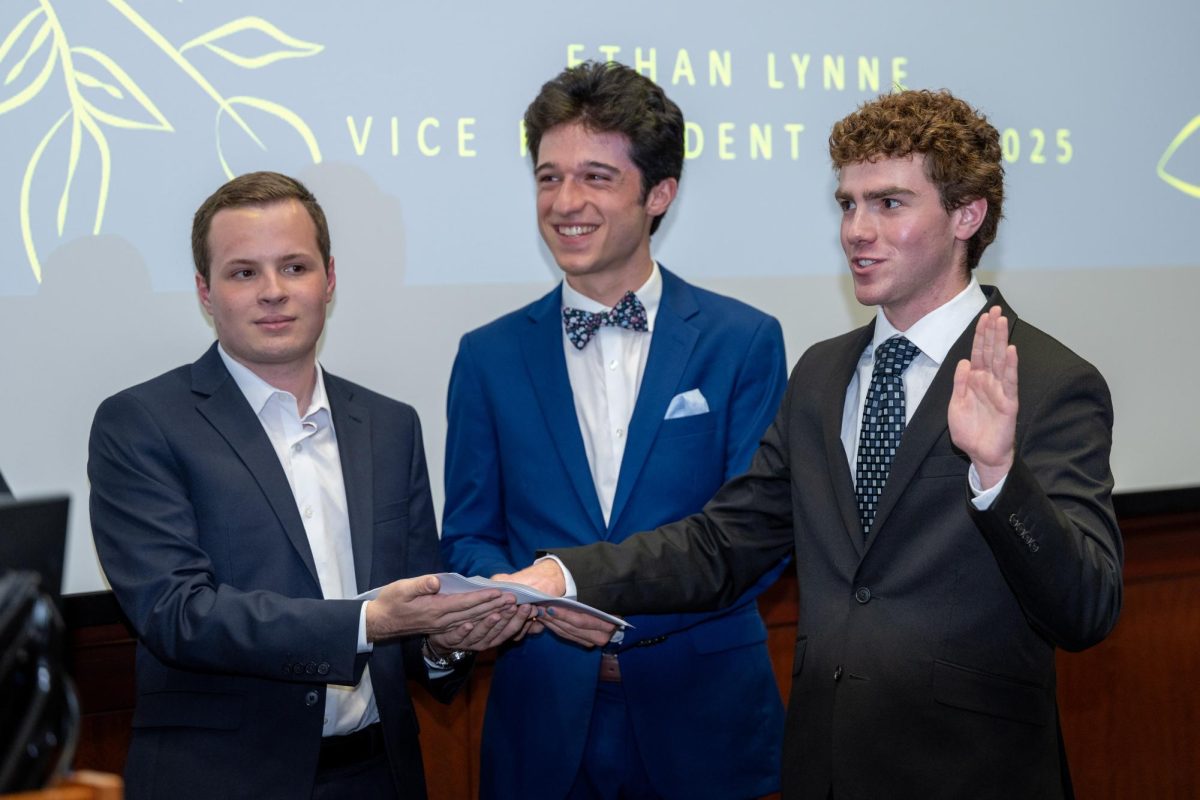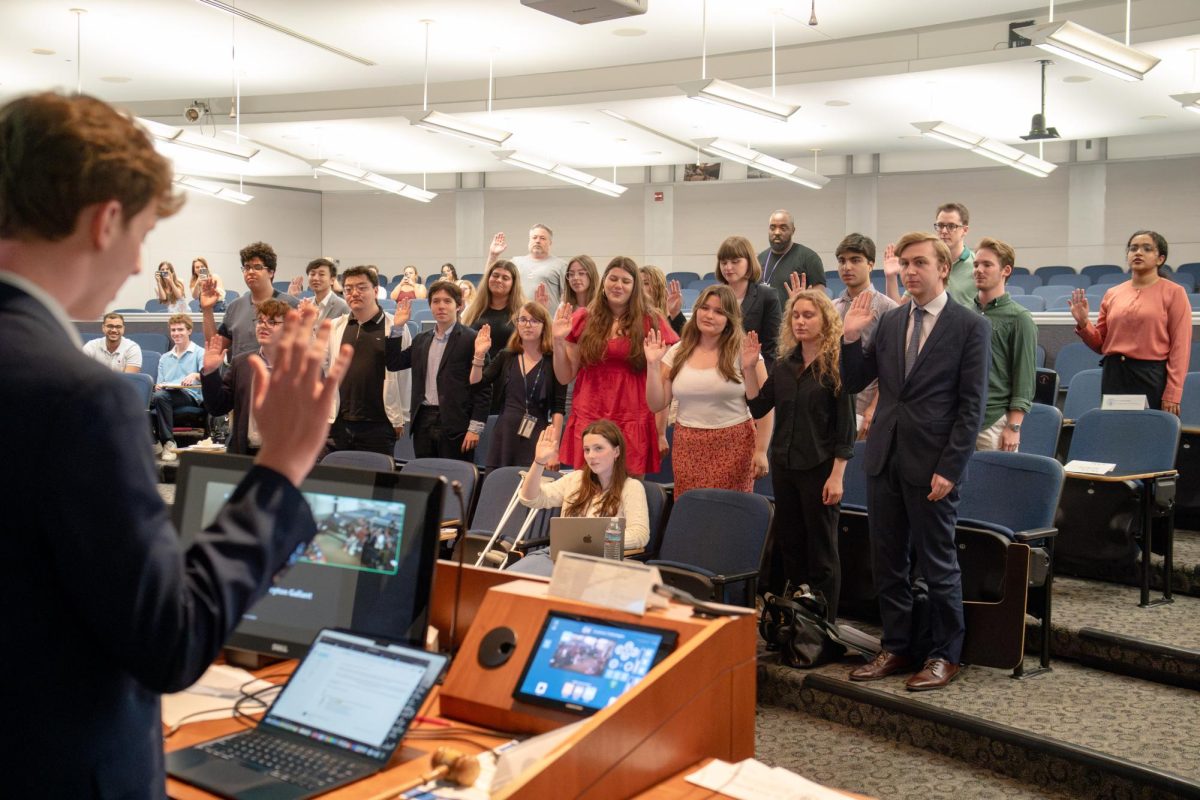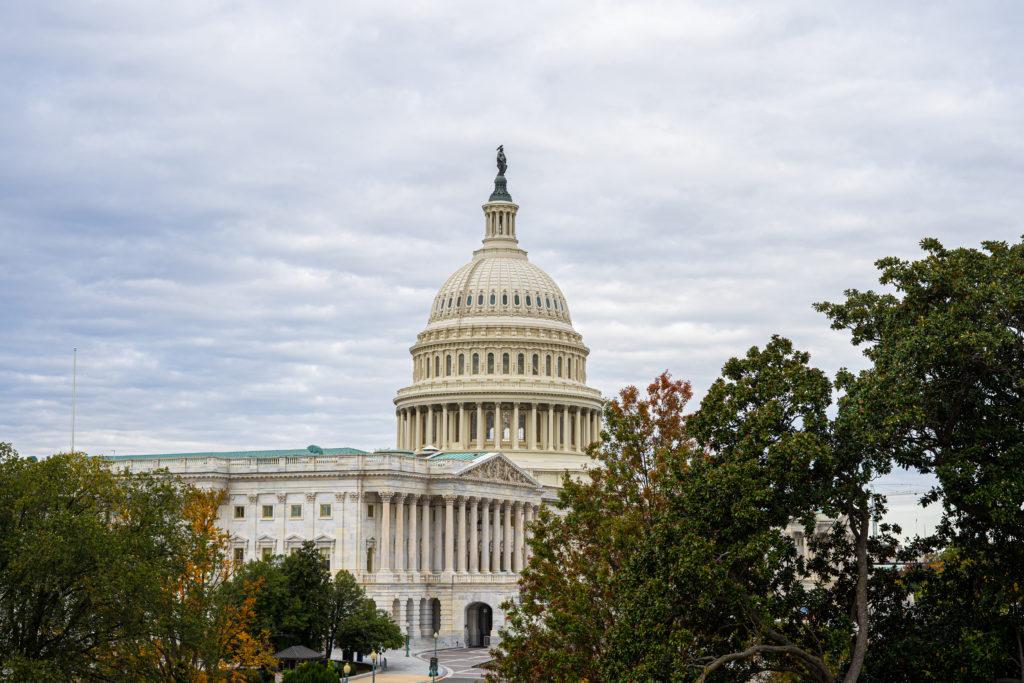The international controversy surrounding a standardized definition of antisemitism has reached Foggy Bottom’s doorstep, but experts in Jewish studies and the Israeli-Palestinian conflict are split on whether GW should join other universities in adopting the definition.
At least 11 universities in the past five years, including GW peer school New York University, have adopted the International Holocaust Remembrance Alliance’s definition of antisemitism, which refers to antisemitism as a perception of or expressed hatred toward “Jewish or non-Jewish individuals and/or their property, toward Jewish community institutions and religious facilities.” Half a dozen experts said adopting the definition could help confront antisemitism on college campuses, but some said the definition could unfairly conflate criticisms of the Israeli government with antisemitism, undermining free speech.
Laurel Leff, a professor of journalism and the associate director of the Jewish Studies Program at Northeastern University, said IHRA’s definition should serve more as a framework for education on deep-rooted antisemitic stereotypes as opposed to a basis for administering penalties to students who are critical of the Israeli government. IHRA’s website states the definition acts as a non-legally binding tool to “address” hate and discrimination around the world, but it doesn’t detail a disciplinary system or enforced penalties once institutions identify an antisemitic case.
“It has to be done very carefully so as education, not as punishment necessarily, as a way of saying, ‘Here’s the ways in which these discussions can veer into antisemitism,’” Leff said.
Leff said the IHRA’s 11 examples accompanying the definition of antisemitism – which range from the justification of harming Jewish people to the act of holding all Jewish people responsible for the actions of the state of Israel – can and should ensure individuals understand why their speech may be harmful to Jews as many Americans are unaware of the connotations of the stereotypes.
“A lot of people don’t really know or understand this, so it becomes easier to talk about Jewish control without understanding the fact that this goes back millennia, to the earliest anti-Judaism that manifested itself after the emergence of Christianity, and that it’s continued since then in these really toxic forms,” Leff said.
The pro-Israel nonprofit StandWithUs called on the University to adopt the IHRA’s definition in January when the organization filed a federal civil rights complaint, claiming assistant professor of clinical psychology Lara Sheehi was antisemitic toward Jewish and Israeli students. In the complaint, StandWithUs urged the University to adopt the definition to target future acts of antisemitism.
A third-party investigation found the allegations against Sheehi to be “inaccurate” and “decontextualized,” according to a statement from interim University President Mark Wrighton last week.
Palestinian rights group Palestine Legal opposed the definition in a separate complaint filed against the University last month alleging a “years-long, hostile environment of anti-Palestinian racism” on campus. Palestine Legal cited the IHRA’s definition and argued it could allow administrators to label the speech as antisemitic and prohibit students from criticizing the Israeli government on campus.
University spokesperson Julia Metjian said the University is “deeply concerned” about antisemitic incidents and any acts of hate committed on GW’s campus and across the globe. She said the University has “strong mechanisms” in place to address acts of discrimination, including on the basis of religion.
“Earlier this week, President Wrighton called on University leaders to strengthen our efforts to combat antisemitism and foster an environment where our community members can engage in constructive and civil dialogue on difficult issues,” Metjian said in an email. “Our focus remains on working with our community members, and campus and national partners on implementing new measures envisioned in President Wrighton’s charge.”
Metjian declined to say whether the University would implement the definition.
An IHRA spokesperson said the definition helps recognize and track antisemitism on an international scale, but the organization does not monitor the implementation of the working definition at the state, local or university level.
“The IHRA’s non-legally binding working definition of antisemitism is a practical educational and awareness-raising tool that has helped sensitize people and institutions to the existence of antisemitism,” they said in an email.
Tamir Sorek, a liberal arts professor of Middle Eastern history at Penn State University, said IHRA’s definition is a “problematic” attempt at defining discrimination that blurs the line between political opposition to the Israeli government and antisemitism.
The IHRA’s website states the definition aims to identify manifestations of antisemitism that may “target the state of Israel, conceived as a Jewish collectivity.” The definition outlines that criticism of Israel “similar to that leveled against any other country” cannot be labeled as antisemitic.
“There is much motivation behind it to protect Israel more than to fight antisemitism,” Sorek said. “Criticism of Israel or attempts to confront Israeli policy politically – they describe them as antisemitism, and this is really harmful for the fight against antisemitism.”
Sorek said chapters of Students for Justice in Palestine at universities across the country face dangers of censorship or retaliation for protests against the Israeli government that may be labeled as antisemitic under the IHRA’s definition.
GW Students for Justice in Palestine faced disciplinary charges from the University in November after students led a postering campaign in October outside of GW Hillel before a speaker event with Doron Tenne, a former Israel Defense Forces intelligence officer. Some of SJP’s posters read “Zionists F*ck Off” and “Decolonize Palestine.”
SRR charged SJP President Lance Lokas and the student organization with disciplinary misconduct for alleged damage caused to concrete benches outside of the Hillel building from wheatpasting, a process of hanging posters with a mixture of starch and water, but the University cleared SJP and Lokas of the charges in December.
“This is extremely problematic and also extremely concerning because it hurts their freedom of speech, and it has a chilling effect,” Sorek said.
Steven Katz, a professor of Jewish and Holocaust studies at Boston University, said antisemitism is a major problem plaguing college campuses across the country and adopting the definition is the first step to address cases of antisemitism at universities. A 2021 Anti-Defamation League report revealed about one-third of Jewish students had personally experienced antisemitism on campus, and 79 percent of the group said it happened to them more than once.
“So it’s clearly a need to try to put some kind of control so that it could be dealt with in a coherent and reasonable way,” Katz said. “And before you do, you have to know what you’re pursuing, which is a definition of antisemitism and its application.”
Joe Cohn – the legislative and policy director for the Foundation of Individual Rights and Expression, the civil liberties nonprofit – said GW and other college campuses shouldn’t adopt the IHRA definition, which he said would give administrators justification to silence and punish students who criticize the Israeli government. He said universities should target antisemitism and broader religious discrimination through other avenues, like training on when an expression becomes objectively offensive and targets a person of a certain identity, without risking limitations to free speech.
The Office of Civil Rights opened at least eight investigations last year into national origin discrimination involving religion on college campuses, according to data from the Education Department.
“The truth is that there is a problem with antisemitism on college campuses, and there is a problem with harassment of other people of other faiths as well,” Cohn said. “Schools should be doing a better job of addressing it but they need to do that without infringing on free speech rights.”
Anna Fattizzo contributed reporting.


